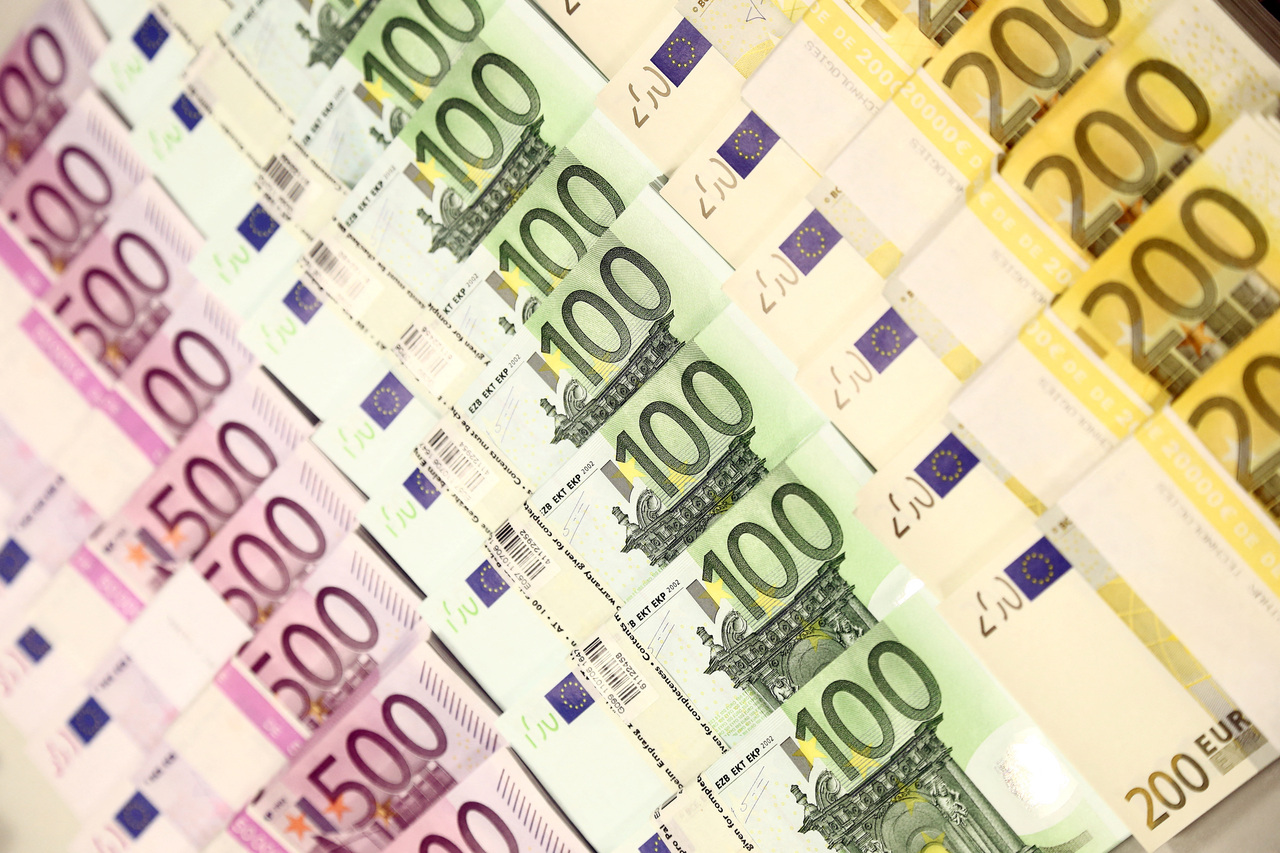Euro tumbles to 20-year low, oil sinks below US$100 as recession fears mount
Sign up now: Get ST's newsletters delivered to your inbox

The euro dropped to US$1.0236, its weakest level since December 2002.
PHOTO: REUTERS
Follow topic:
NEW YORK (REUTERS, NYTIMES) - The euro sank on Tuesday (July 5) to its weakest level against the US dollar in almost 20 years, while oil futures tumbled and bond prices rose, as investors sought safety after the latest data fuelled fears of a global economic slowdown.
Euro zone recession fears were exacerbated by concerns about an energy crisis in Europe and by Tuesday's data, which showed a sharp slowdown in business growth in June, after Germany on Monday reported its first monthly trade deficit since 1991.
Earlier, news that Norwegian offshore workers began a strike on Tuesday that will reduce oil and gas output compounded fears about a European energy shortage.
Mr Bipan Rai, North America head of foreign exchange strategy at CIBC Capital Markets in Toronto, cited signs of a looming energy crisis in Europe and economic concerns for the euro's tumble.
"The threat of a recession in the euro zone is a more clear risk now relative to before," Mr Rai said.
The euro dropped by almost 1.8 per cent against the dollar to US$1.0236, its weakest level since December 2002. It was last down 1.48 per cent against the dollar.
Meanwhile, the dollar index, which measures the greenback against a group of major currencies, was up 1.31 per cent, after hitting its highest level since December 2002. The dollar is seen as a safe haven in times of acute economic uncertainty.
"If people are concerned there is going to be a slowdown and put their money in the safest place and cut back on unnecessary spending, it can become a self-fulfilling prophesy," said Mr Shawn Cruz, head trading strategist at TD Ameritrade.
After falling sharply early in the session, US equities pared losses as the day wore on and the Nasdaq ended up rallying with strength in technology and consumer stocks. The S&P 500 ended up 0.16 per cent, recovering from a deep slide earlier in the day.
The yield on the US 10-year Treasury note, an important gauge of borrowing costs, dipped below the two-year yield, which traded at about 2.8 per cent. The so-called inverted yield curve is a rare phenomenon that often happens before a recession.
Economists have recently raised the possibility of a recession in their forecasts. Interest rates in the United States have experienced their largest increase since 1994, inflation is at its highest in 40 years, and financial markets set grim records in the first half of the year.
In Europe, energy industry turmoil and the war in Ukraine are weighing heavily on the region. Supply chain strains are expected to slow the euro zone's largest economy, which is heavily dependent on exports, and may even cause a recession.
"Overall, we think the outlook is deteriorating precipitously," Ms Daniela Ordonez of Oxford Economics wrote in a note on Tuesday about the euro zone economy.
Another sign of anxiety about global growth was seen in the price of oil. Brent crude, the international benchmark, fell more than 9 per cent on Tuesday, to US$103 a barrel, its biggest daily decline since March. West Texas Intermediate, the US benchmark, fell nearly as much, dropping below US$100 per barrel for the first time since May.
The euro's decline brought it closer to parity with the dollar, with one euro trading for about US$1.027, its lowest level since 2002. Many analysts have said it is only a matter of time before the euro reaches a one-to-one exchange rate with the dollar as European economies struggle with high inflation, labour unrest and turmoil in energy markets.
"Europe is the weakest link in the global economy," said Mr Joe Quinlan, head of market strategy for Merrill and Bank of America Private Bank. "They are in the crosshairs of the war and the energy crisis."
Russia has been steadily restricting the supply of natural gas to Western Europe, which German officials have described as an economic attack in retaliation for sanctions and military support for Ukraine, raising the spectre of gas rationing if things get worse. Then, this week, energy workers in Norway, another crucial supplier of gas in Europe, went on strike over pay, restricting supplies further and pushing up gas prices.
To tame the highest inflation since the euro was created in 1999, the European Central Bank (ECB) is expected to raise interest rates for the first time in more than a decade at its meeting this month.
But as the euro zone's economic outlook darkens, investors are concerned that the ECB has moved too late and may not have much time to raise rates before a recession forces it to change course.
The US Federal Reserve is expected to remain more aggressive in raising rates as it tries to cool economic growth and rein in inflation, which would make holding assets denominated in dollars more attractive than ones in euros, on top of the worries about the prospects for the euro zone economy.
The euro's slide makes imports more expensive for people and businesses in the 19 countries that use the currency, adding to the region's inflationary woes. It also reduces the value of European sales for US companies, presenting "one more variable that investors have to be aware of on the downside for earnings", Mr Quinlan said.

